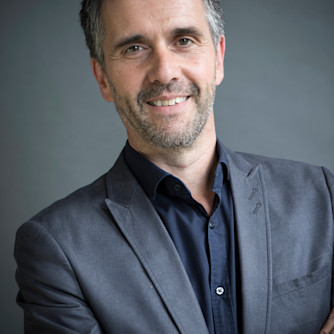The people behind CLICKNL: Liesbet van Zoonen
__Who are the people that enthusiastically work on strengthening the creative industry and boosting meaningful innovations every single day? What do they think are the biggest challenges for the creative industries and what are their personal motivations? This time: Liesbet van Zoonen, professor of Sociology at the Erasmus University and chairman of the board for CLICKNL. “The common thread in my research is that I’m always searching for ways to increase inclusivity and equality.” __
What is your research about?
“From a really general point of view, I research media and communications and new digital technology from the perspective of the user. I actively try to forge connections between the world of academics and the design field. When I worked in Great Britain I noticed how much added value that creates. Right now, I’m applying that in my research into BOLD Cities. We’re researching data revolution and we’re doing that in the city, because that’s where a lot goes on in terms of data. We are looking at how data and digital technology can work for, through and with citizens.”
“One of the results of this research is the research game ‘Your Neighborhood, Your Data (Jouw Buurt, Jouw Data)’, in which you move through a smart city and get questions about data. In a smart city you have to give out data in some places, especially in public transport, but also at wifi spots, sensors or cameras. People aren’t always aware of that. There are certain things that need to be considered such as privacy or saving costs, for example that you get free coffee if you leave behind your email address. I think this game is a nice combination between research and giving people more footing in day-to-day life. The goal of the game is mostly to incite a public debate. Some municipalities are experimenting with smart lamp posts with cameras, wifi and sensors. We ask the question who gets to join in on the conversation and make decisions. Is that just the managers, or is it everyone who uses the data? That’s something we should all look at together.
You’ve also researched societal and individual taboos and politics and popular culture. What is the common thread?
“What connects it to my research is that I always look at how to involve regular people and which groups keep getting excluded because of existing inequalities within for example the smart city or new media. Most of the time the same people are excluded everywhere. I research how to create more inclusivity and equality.”
We need to be careful when it comes to scientification of the creative sector
What are the biggest challenges in our society to you, in relation to your field of research?
“That’s related to my previous answer: there is polarization in society. We have to keep working together and make sure that the differences don’t become too big. Not just when it comes to technology. Of course, it plays a part, because everyone can easily retreatinto their own bubble. I think it’s not very clear what the design sector contributes to resolving differences. I know it happens, that city planners go to neighborhoods, but you don’t really see it. Topics like energy transition and new biological materials have a much bigger wow-factor. But topics like bringing neighbors together, social cohesion, are also really important if you ask me. That is why you should constantly guard that attention for inclusivity, which is what we try to do in the CLICKNL board and agency as well.
What is the importance of knowledge in the creative industry as far as you’re concerned?
“Design in the creative industry should be supported by scientific insights. But we need to be careful that there isn’t too much scientification of the sector, because there’s also a lot of craftsmanship there. There’s not that much attention for that. I’m talking about furniture makers, restorers, and costume designers. There aren’t that many financing options and some crafts are in the 21% VAT tariff. That makes the products very expensive which causes that branch to lose support, because neither museums nor private persons can afford it. The consequence is a whole chain slowly collapsing. I think it’s important to keep this issue and the importance of craftsmanship on the agenda.”

Liesbet van Zoonen





